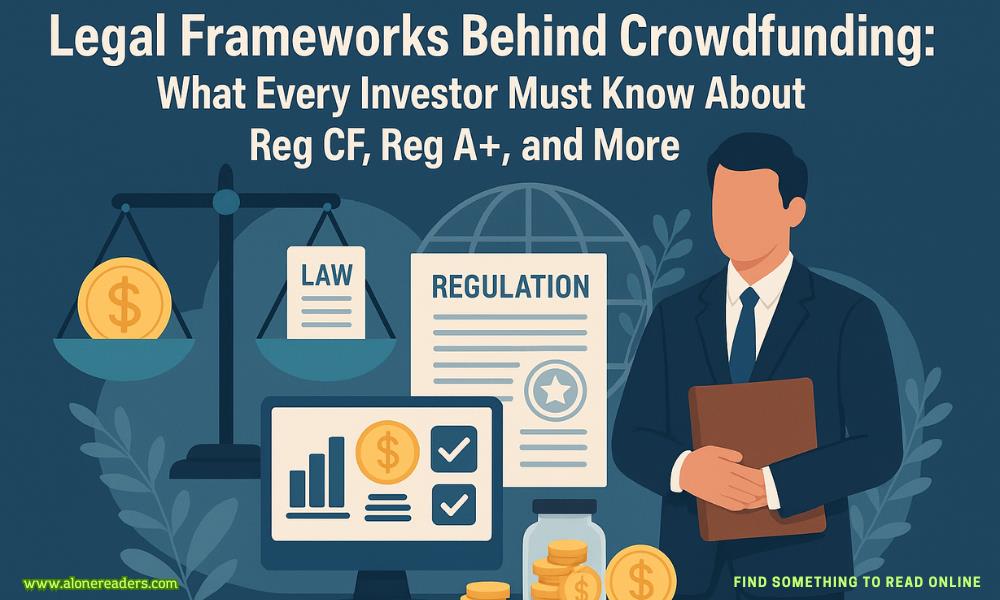
Crowdfunding has become a pivotal method for startups and small businesses to access capital without traditional financial gatekeepers. Yet, beneath the seemingly simple process of investing small amounts online lies a complex web of legal frameworks that protect investors and ensure regulatory compliance. This article will provide a deep dive into the U.S. crowdfunding regulations—Regulation Crowdfunding (Reg CF), Regulation A (Reg A and Reg A+), Regulation D (Rule 506)—and explore comparable global regulations. We’ll also examine investor limits, reporting duties, platform obligations, and legal risks that every participant should understand.
Origins and Legal Basis
Reg CF was introduced under Title III of the Jumpstart Our Business Startups (JOBS) Act of 2012 and became effective in May 2016. Its goal is to democratize startup investing by allowing non-accredited investors to participate under structured safeguards.
Issuer Requirements
Investor Limits
Investment caps depend on the investor's net worth and annual income:
Intermediary Rules
All Reg CF offerings must be conducted via FINRA-registered intermediaries, either:
Intermediaries must:
Disclosure Obligations
Companies must file:
Reg A Overview
Also derived from the JOBS Act, Regulation A allows broader fundraising through a public offering exemption and is split into two tiers:
Issuer Requirements
Investor Rules
Trading and Liquidity
Unlike Reg CF, Reg A+ shares can be freely traded on secondary markets, offering liquidity benefits, especially for Tier 2 offerings that become public-reporting companies.
State Blue Sky Laws
Overview
While not technically "crowdfunding" in the retail sense, Reg D offerings under Rule 506(b) and 506(c) are essential to understand as they account for the majority of private capital raised in the U.S.
Rule 506(b):
Rule 506(c):
Accredited Investor Definition (2024)
SEC and FINRA Oversight
Funding platforms must be either broker-dealers or registered funding portals, both subject to FINRA and SEC audits. Violations can result in severe penalties, including:
Anti-Money Laundering (AML) and Know Your Customer (KYC)
Platforms must implement:
Communication Channels and Investor Forums
Platforms are obligated to:
Advertising Rules
European Union (EU)
Under the EU Crowdfunding Regulation (2020/1503):
United Kingdom (Post-Brexit FCA Framework)
Australia
Canada
Securities Fraud
False or misleading statements during fundraising are subject to Section 10(b) and Rule 10b-5 under the Securities Exchange Act. Investors can seek civil remedies or participate in class-action suits.
Liquidity Risk
Most Reg CF and Reg D securities are restricted securities, requiring:
Disclosure and Reporting Failures
Failure to provide timely reports (e.g., Form C-AR) can:
Disqualification Events ("Bad Actor" Rule)
Certain past legal violations by issuers or their executives may trigger disqualification from using Reg CF or Reg D exemptions.
Conclusion: Staying Legally Informed Is the Key to Smart Crowdfunding
For retail investors, crowdfunding can be an exciting way to engage in startup finance—but only if they navigate it with a solid understanding of the regulatory landscape. From the issuer's obligations under Reg CF and Reg A+ to investor caps, state law preemptions, and platform compliance protocols, each component serves to balance access and protection. Internationally, while the momentum is growing toward harmonization, local nuances matter significantly. Before investing or launching an offering, understanding the legal frameworks is not optional—it’s fundamental.